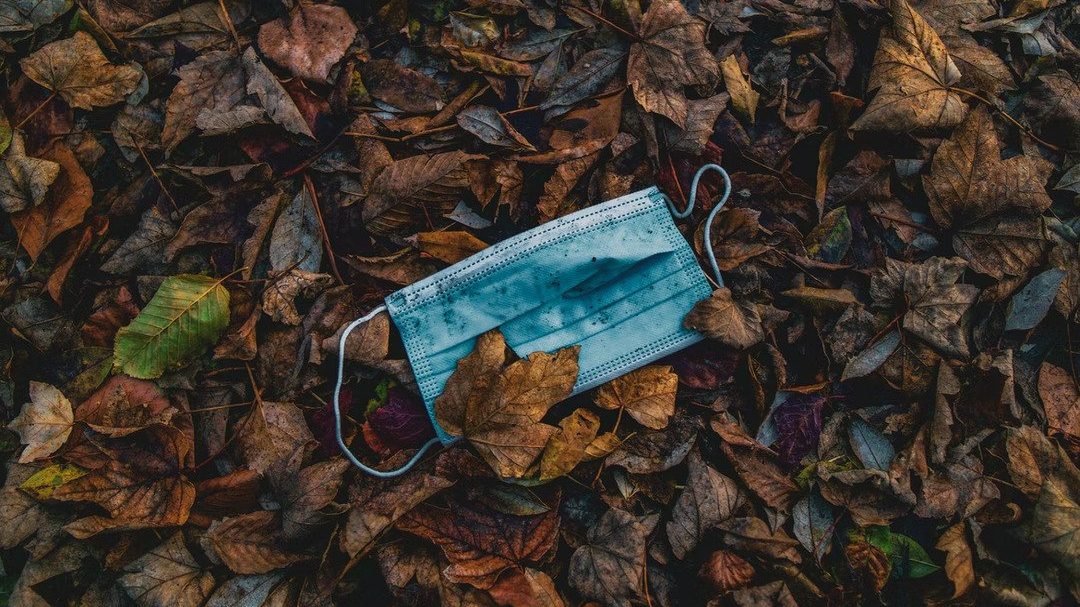
28 September 2021 | Article | Ryan Teo
Small Masks, Big Problem
4 Ways to Responsibly Reduce Face Masks Pollution
Wearing a face mask is the recommended best practice to reduce the spread of COVID-19, and to keep us and our loved ones safe. It has also become mandatory in some parts of the world, leading to a boom in the use of single-use face masks. With any growth, the boom of mask usage has come with a new environmental problem.
According to estimates by Greenpeace Taiwan, at the beginning of the pandemic (from early February to mid-May 2020) Taiwan, with a population of 23.57 million, produced and used roughly 1.3 billion surgical masks. If each face mask weighs 4 grams, that’s roughly 5,500 metric tonnes of face masks produced in the span of only three months, which is equivalent to the weight of 55 blue whales!
To make matters worse, used face masks are “unrecyclable” because they may be contaminated and could potentially lead to indirect infection and viral transmission if they enter the recycle system.
Most face masks contain plastics or other by-products of plastics materials. As such, when discarded irresponsibly, it contributes to plastic pollution which majorly threatens the environment.
We can now easily find littered face masks everywhere – from roadsides to the oceans. This immediately impacts the wildlife through direct and indirect ingestion, as well as entanglements which can cause respiratory and gastrointestinal obstructions or death by starvation.
More alarmingly, scientists found that disposable masks could be releasing chemical pollutants and nano-plastics when submerged into water. The heavy metals found were also “bio-accumulative”, which means they would remain in the aquatic systems and build up over time. With the vast amount of face masks being produced, we can only imagine how this can affect our seas and the wider environment in the long run.
With so much happening, it seems that the one important conversation we are not having enough of is – What Can We Do?


1. Dispose your face masks the right way
Used face masks are considered hazardous waste when not disposed properly. Proper disposal practices are important, so they don’t enter the Earth’s ecosystem. Here’s a step-by-step guideline of how you can dispose your facemask safely and reducing the impact on our planet:

2. Support environmental non-profits / NGOs
Non-profits who are fighting against plastic pollution need all the support they can get. These environmental organisations are taking action by organising grassroots movements, conducting scientific research, providing resources on eliminating single-use plastics, and advocating for a plastic-free future:
3. Upcycle your used face mask
There are also many ways you can repurpose your used face masks at home. Just remember to clean the masks – wash and sun-dry them or alternatively, disinfect your masks using UV – before upcycling them. Here are some DIY ideas that you can try!
4. Stretch the usage of face mask
The best way to stretch out your face mask supply is to rotate and reuse them. If you’re going out to multiple places in a day or have only worn your face mask just for a while, keep your used mask in an open paper or Ziploc bag so the moisture in the mask can evaporate before you reuse it again. However, a face mask should not be worn for longer than a day.
Our responsibility of caring for the environment continues with or without the pandemic. Whilst organisations continue with their attempts to find sustainable long-term solutions to the face mask pollution problem, as individuals, we can play our part too.
If you have more environmental-friendly ideas on how we can dispose and recycle our face masks or know any organisations with great stories on mask disposal, share them with us at consulting@sgsupport.com or drop us a message here!




